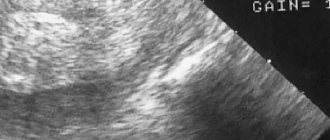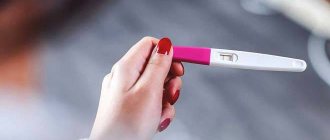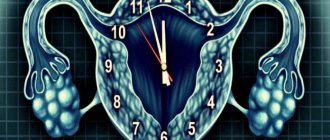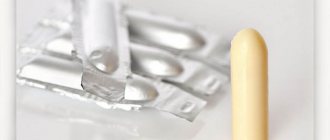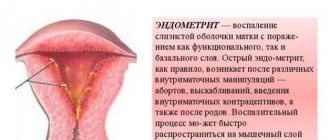Photo: lab-krasoty.ru
Photo: med.yar.ru
Photo: 9800000.ru
Photo: ukrcommerce.com
Divigel is a synthetic estrogen that belongs to the group of sex hormones and modulators of the reproductive system - natural and semi-synthetic estrogens (G03CA03). Active ingredient: Estradiol in the form of hemihydrate.
The drug Divigel is indicated for hormone replacement therapy. You need to know that the effect of Divigel is enhanced by taking folic acid and thyroid hormone medications. Dispensed with a doctor's prescription!
Description of the drug
The main hormone present in the female body is estrogen. If it is deficient, pregnancy does not occur, since due to the small thickness of the endometrium, the fetus will not be able to attach to one of the walls of the uterus. An excess of the substance suppresses ovulation, so no egg is released. For the same reason, a woman should contact a gynecologist to prescribe appropriate treatment.
At the pregnancy planning stage, Divigel is prescribed. This remedy is prescribed if endometrial hypoplasia is diagnosed. This diagnosis means that the inner layer of the uterus is too thin, so the zygote cannot attach to it.
It is Divigel that helps achieve the initial goal. The medication must be used exclusively under the supervision of a gynecologist. Self-use is fraught with severe uterine bleeding, which, in turn, leads to menstrual irregularities.
The medication is widely used at the IVF planning stage. Women who are unable to conceive a baby naturally decide to undergo this procedure. The drug is withdrawn gradually.
Contraindications and possible consequences of using Divigel
Divigel increases the level of estrogen in the blood, so during its use the nature of menstruation may change. Bleeding becomes scanty and irregular (metrorrhagia) - this is normal and will not last long. The regularity and nature of menstruation stabilize in the first 2-3 cycles, the amount of discharge is normalized, and the duration of bleeding does not exceed 4-6 days. If the cycle is not established, you must consult a doctor to change the drug.
If you have a suspicious reaction from your body while taking the drug (including changes in menstrual bleeding), tell your doctor - only he can assess how normal this or that reaction is in each specific case. An allergy to the drug is also possible.
Frequent delays in applying the drug or omissions can provoke uterine bleeding, so it is better to avoid this.
In addition to allergies and hypersensitivity to the drug, Divigel has other contraindications that should be taken into account before use.
Diseases incompatible with the use of Divigel:
- Tumors of the mammary glands, pituitary gland, genital organs (estrogen can provoke the growth of such formations).
- Diabetes.
- Uterine bleeding (even rare).
- Any bleeding of unknown origin.
- Inflammation of the reproductive organs.
- Varicose veins and predisposition to blood clots.
- Endometrial hyperplasia.
- Pregnancy or lactation.
- Diseases of the liver or urinary system.
- Neurological diseases.
- Previous strokes or heart attacks.
- Bronchial asthma.
- Endocrine pathology (disorder of fat metabolism).
- Swelling of the arms and legs (the drug retains fluid in the body, which aggravates the swelling).
If you follow the dosage and doctor's recommendations, the likelihood of side effects when using the drug is minimized, however, each body is individual, and it is better to know in advance what to expect from a particular medicine.
Mechanism of action
Thanks to Divigel, ovulation stimulation is possible. The drug is a gel applied to the genital area or to the buttocks. The regimen is determined only by the doctor. Contains estradiol.
Advantages of this form of application:
- fewer contraindications and side effects;
- easy tolerability;
- mild effect on hormonal balance;
- There is practically no effect on the digestive system.
In the pharmacy, Divigel is sold in dosages of 500 and 1000 mg. It is prescribed when the condition of the endometrium is unsatisfactory. The drug is prescribed after an ultrasound examination. Folliculometry is done mainly after the patient complains of prolonged non-pregnancy.
Divigel and Duphaston when planning pregnancy
The drugs are not analogues of each other. Active ingredient of Divigel: Estradiol in the form of hemihydrate. Duphaston includes the active component - Dydrogesterone. Doctors prescribe a combination of Divigel and Duphaston for a successful pregnancy. The application regimen is as follows: Divigel is applied before ovulation (from about 4-5 days of the cycle), and after ovulation Duphaston is taken.
Duphaston. Photo: medicine.abbott
Effect on ovulation
Does Divigel suppress ovulation? There is a widespread belief that the drug has a negative effect on this process. Divigel does not have a significant effect on ovulation. Therefore, the drug cannot be used as a contraceptive. As a means of protection, it is better to use highly specialized drugs.
Divigel is used to stimulate ovulation. Its positive effect on the endometrium, on the contrary, can increase the chances of conception; the drug does not interfere with the growth and development of follicles. An egg should be released from them in a timely manner, ready for fertilization.
When the medicine is used independently, it is better to start the course of treatment from the first days of the cycle. By the time the follicular capsule bursts, the thickness of the endometrium will reach the required level.
Divigel and Utrozhestan
Divigel and Utrozhestan.
Photo: forum.sibmama.ru The drugs are not analogues of each other. Divigel contains Estradiol. Utrozhestan contains - Progesterone. This combination can be prescribed by doctors to prevent endometrial hyperplasia. The patient’s psycho-emotional state is normalized.
Contraindications
There are certain cases when Divigel cannot be used. In general, it is believed that local application of the substance has fewer contraindications than taking tablets in standard form. However, situations of this kind still exist:
- thrombosis;
- liver cancer;
- the presence of benign and hormone-dependent tumors in the reproductive system;
- mammary cancer;
- the presence of unidentified uterine bleeding;
- hormone-dependent pathologies of the mucous membrane;
- porphyria;
- renal failure.
Do not apply the gel to damaged areas of the skin.
Features of using Divigel
The drug is applied daily at regular intervals to the abdomen, lower back, buttocks or shoulders. It is permissible to change the application location, but the treatment area should not exceed the size of two palms. The gel is well absorbed into the skin and is immediately absorbed into the blood, but despite this, the treated area cannot be wetted for one hour. It is not recommended to apply the gel to other areas of the skin, damaged or inflamed areas.
Divigel is produced in sachets of 0.5 or 1 g, one package contains 28 pieces. Start using 0.5 g, gradually increasing the dosage. The dosage regimen is prescribed by the doctor depending on the characteristics of the body and test results; It is not recommended to change this scheme. After all, the thickness of the endometrium at different periods of the cycle is not the same, and if you increase the dosage at the moment of maximum thickness of the mucous layer, this will provoke the development of hyperplasia (excessive growth of the endometrium), which reduces the likelihood of a successful conception.
Side effects
Can Divigel suppress ovulation? No such impact occurs. However, there are other side effects, including the following:
- red spotting secretion;
- breakthrough uterine bleeding;
- tides;
- thrombosis;
- enlargement and hardening of the mammary glands, their increased pain;
- dizziness;
- nausea;
- presence of heart problems;
- migraine;
- depression;
- tremor;
- swelling;
- drowsiness;
- increased nervousness;
- change in body weight.
Interaction with other drugs
The medicine is responsible for the production of hormones in the first phase of the menstrual cycle. Divigel does not need to be used after ovulation. However, if the doctor decides to continue treatment, the course will have to be extended.
Often this drug is not independent. Other tablets are prescribed in conjunction with it. Among them, the most popular are follicle growth stimulants, substances that support the second phase, and agents that directly cause the release of the egg. The most important thing is to choose a treatment regimen that suits the patient, since problems can arise with drug combinations. This fact once again proves that there is no need to self-medicate.
When planning pregnancy in one cycle, Divigel is often prescribed along with Duphaston. These medications are responsible for the production of various hormonal substances. As a result, the endometrium is restored to the required norm, which contributes to successful implantation. The drugs are perfectly compatible with each other, their effect is not suppressed. A similar characteristic applies to Utrozhestan.
Treatment with Duphaston begins in the second phase. Ovulation is determined by a specialized ultrasound, using home tests or basal temperature.
Next, it is worth considering compatibility with drugs that produce the missing thyroid hormones. The doctor, based on each individual case, determines whether it is necessary to use gel and products made with levothyroxine.
Those who have problems with egg release also need Clostilbegit. At the same time, drugs are not used, since the result will not be as expected. They are usually divided into different phases of the cycle.
Instructions for use of Divigel
| Active substance | Estradiol |
| pharmachologic effect | Antimenopausal |
| Vacation conditions | Prescription |
| Release form | Gel for external use |
| Pregnancy and breastfeeding | Contraindicated |
| Age group | During menopause |
| Best before date | 3 years |
| Storage conditions | Not higher than +25°С |
| Analogs |
|
| Category | Hormonal medications |
| Instructions for use (PDF) | Gel for external use Divigel |
| Manufacturer | ORION PHARMA (Finland) |
| Price | from 543 rub. |
Directions for use and dosage
Divigel is a gel for transdermal use. Divigel can be used for long-term and cyclic therapy. The usual starting dose is 1.0 mg estradiol (1.0 g gel, respectively) per day, but the choice of starting dose may be based on the severity of symptoms. Depending on the clinical picture, the dose can be changed after 2-3 cycles individually from 0.5 g to 1.5 g per day, which corresponds to 0.5 to 1.5 mg estradiol per day.
During treatment with Divigel, patients with an “intact” (unoperated) uterus are recommended to be prescribed a gestagen (for example, medroxyprogesterone acetate, norethisterone, norethisterone acetate or dihydrogestron) for 10-12 days in each cycle. After a course of gestagen, menstrual-like bleeding should occur. In case of extraordinary or prolonged uterine bleeding, the cause of its occurrence must be determined.
Divigel for menopause
In postmenopausal patients, the cycle duration can be increased to 3 months. The initial dosage is 1 g per day. After 2-3 cycles, the dose can be adjusted for each patient individually.
How to properly smear Divigel
The gel is usually applied once a day to clean skin of the lower part of the anterior abdominal wall, lumbar region, shoulders, forearms, or alternately to the right or left buttocks, alternating the application sites daily. The application area should be equal in size to 1-2 palms. After applying the drug, you should wait a few minutes until the gel dries (2-3 minutes). The area where the gel is applied should not be rinsed for 1 hour. Accidental contact of Divigel with the eyes should be avoided. You should wash your hands immediately after applying the gel.
Where to apply Divigel. Photo: iemc.ru
If the patient has forgotten to apply the gel, this should be done as soon as possible, but no later than within 12 hours from the date of application of the drug as scheduled. If more than 12 hours have passed, then applying Divigel should be postponed until the next time. If the drug is not used regularly (missed doses), menstrual-like uterine “breakthrough” bleeding may occur.
Divigel for IVF
The drug is prescribed to build up the endometrium so that there is a successful conception. The drug is used 2 weeks before IVF.
Menstruation after Divigel
After Divigel, scanty periods are not typical for this drug. The cycle should normalize, and its duration will be about 5 days. But you need to know that at the very beginning of treatment with Divigel, periods may be slightly lighter or darker, duration shorter or longer, heavy or not at all.
BUT, if scanty bleeding persists for 2-3 cycles, then it is better to consult a doctor for a dose adjustment and possibly additional inclusion of a gestagen in the treatment regimen.
Compound
Gel Divigel
- active ingredient: Estradiol hemihydrate 1 mg, 0.5 mg;
- excipients: carbomers (carbopol 974 R), trolamine, propylene glycol, ethyl alcohol (96%), purified water up to 1.0 g.
Structural formula of Ethinyl estradiol is C20H24O2. Photo: Klaus Hoffmeier, ru.wikipedia.org
Indications for use
- hormone replacement therapy for symptoms of estrogen deficiency;
- treatment of climacteric syndrome associated with natural or artificial menopause that develops as a result of surgical intervention.
Divigel for endometrial growth
When the endometrium is thin, gynecologists often prescribe the drug Divigel for the growth of its walls.
Contraindications
- Hypersensitivity to estradiol and/or any other ingredient of the drug.
- Breast cancer (diagnosed, suspected or history).
- Diagnosed or suspected estrogen-dependent malignant tumors of the ovaries, uterus, endometrium.
- Benign neoplasms of the genital organs and mammary glands (cervical and uterine cancer, uterine fibroids, vulvar cancer, ovarian cancer) in women under 60 years of age.
- Vaginal bleeding of unknown etiology and a tendency to uterine bleeding.
- Endometrial hyperplasia.
- Pituitary tumors.
- Diffuse connective tissue diseases.
- Inflammatory diseases of the female genital organs (salpingoophoritis, endometritis).
- Hyperestrogenic stage of menopause.
- Spontaneous thromboembolic venous diseases, including a history. Deep vein thrombosis, pulmonary embolism, including a history.
- Thrombophlebitis and acute thrombophlebitis, including a history.
- Congenital hyperbilirubinemia (Gilbert, Dubin-Johnson, Rotor syndromes).
- Liver tumors (hemangioma, liver cancer).
- Cerebrovascular accidents (ischemic stroke, hemorrhagic stroke).
- Diabetes mellitus, retinopathy, angiopathy.
- Sickle cell anemia.
- Fat metabolism disorders.
- Cholestatic jaundice or severe cholestatic itching (including increased manifestations during a previous pregnancy or while taking steroid drugs).
- Otosclerosis (including its exacerbation during pregnancy).
Side effects
- from the central and peripheral nervous system: headache, migraine, dizziness, depression, chorea;
- from the cardiovascular system: increased blood pressure, thrombophlebitis;
- from the digestive system: nausea, vomiting, stomach cramps, flatulence, pain in the epigastric region;
- allergic reactions at the site of application: rash, skin irritation, skin hyperemia at the site of application of the gel, contact dermatitis;
- from the reproductive system: erratic vaginal bleeding (metrorrhagia) or scanty spotting, an increase in the size of uterine leiomyomas, endometrial hyperplasia (when prescribed without combination with progesterone), endometrial carcinoma (in women with an intact uterus after menopause), ovarian sclerosis with long-term use, change in libido;
- from the endocrine system: engorgement (tension and/or enlargement) of the mammary glands, weight gain, decreased tolerance to carbohydrates;
- dysfunction of the liver and biliary system: cholestatic jaundice, cholelithiasis, attacks of porphyria;
- on the part of water-salt metabolism: retention of Na+, Ca2+ and water (edema) with prolonged use;
- other: visual impairment (changes in corneal curvature), chloasma, melasma, vaginal candidiasis.
pharmachologic effect
The active ingredient of Divigel, synthetic 17β-estradiol, is chemically and biologically identical to endogenous human estradiol (produced in the body of women from the first menstruation until menopause) produced by the ovaries. In the cells of the organs to which the action of hormones is directed, estrogens form a complex with specific receptors (found in various organs - in the uterus, vagina, urethra, mammary gland, liver, hypothalamus, pituitary gland), the receptor-ligand complex interacts with estrogen-effector elements genome and specific intracellular proteins that induce the synthesis of mRNA, proteins and the release of cytokines and growth factors.
Divigel has a feminizing effect on the body. Stimulates the development of the uterus, fallopian tubes, vagina, stroma and ducts of the mammary glands, pigmentation in the area of the nipples and genitals, the formation of secondary sexual characteristics of the female type, the growth and closure of the epiphyses of long tubular bones. Promotes timely endometrial rejection and regular bleeding, in high concentrations causes endometrial hyperplasia, suppresses lactation, inhibits bone resorption, stimulates the synthesis of a number of transport proteins (thyroxine-binding globulin, transcortin, transferrin, sex hormone-binding protein), fibrinogen. It has a procoagulant effect, increases the synthesis of vitamin K-dependent blood coagulation factors (II, VII, IX, X) in the liver, reduces the concentration of antithrombin III.
Divigel increases blood concentrations of thyroxine, iron, copper, etc. It has an anti-atherosclerotic effect, increases HDL content, reduces LDL and cholesterol (triglyceride levels increase). Modulates the sensitivity of receptors to progesterone and sympathetic regulation of smooth muscle tone, stimulates the transition of intravascular fluid into tissues and causes compensatory retention of sodium and water. In large doses, it prevents the degradation of endogenous catecholamines by competing for active catechol-O-methyltransferase receptors.
After menopause, only a small amount of estradiol is produced in the body (from estrone found in the liver and adipose tissue). A decrease in the content of estradiol produced in the ovaries is accompanied in many women by vasomotor and thermoregulatory instability (“flushes” of blood to the facial skin), sleep disorders, as well as progressive atrophy of the genitourinary system.
Osteoporosis (mainly of the spine) develops due to estrogen deficiency. After oral administration, a larger amount of estradiol is metabolized in the lumen (microflora) and wall of the intestine, as well as in the liver, before entering the bloodstream (leading to non-physiologically high concentrations of estrone in plasma, and with long-term therapy, to the accumulation of estrone and estrone sulfate) . The consequences of the accumulation of these metabolites in the body over a long period of time have not yet been clarified. It is known that oral administration of estrogens causes an increase in protein synthesis (including renin), which leads to an increase in blood pressure.
Divigel is an alcohol-based gel for external use. When applied to the skin, the alcohol quickly evaporates and estradiol penetrates the skin, entering the circulatory system. Application of Divigel to an area of 200-400 cm2 (the size of one or two palms) does not affect the amount of absorbed estradiol. However, if Divigel is applied over a large area, the degree of absorption is significantly reduced. To some extent, estradiol is retained in the subcutaneous tissues, from where it is gradually released into the bloodstream.
Transdermal application avoids the first stage of hepatic metabolism, due to which fluctuations in the concentration of estrogen in the blood plasma when using Divigel are insignificant.
Precautionary measures
Carefully
Divigel should be prescribed for diseases such as: bronchial asthma, migraine, epilepsy, arterial hypertension, heart failure, coronary heart disease, liver and/or kidney failure, edema syndrome, endometriosis, fibrocystic mastopathy, porphyria.
Experience with women over 65 years of age is limited.
Divigel should not be applied to the mammary glands, face, genital area, or to irritated areas of the skin.
Divigel during pregnancy
The use of the drug during pregnancy is contraindicated. You need to know that estradiol passes into breast milk.
Divigel when planning pregnancy
Prescribed when planning pregnancy if ultrasound shows a deviation in the thickness of the endometrium (thin).
special instructions
A complete personal and family history should be obtained before starting or restarting hormone replacement therapy. A medical examination should be conducted to identify possible contraindications and observe the necessary precautions when taking the drug (including the pelvic organs and mammary glands).
During the treatment process, it is recommended to conduct periodic examinations; the frequency and set of methods included in it are determined for each specific case individually. Tests, including mammography, should be carried out in accordance with accepted standards and adapted to the individual clinical needs of each individual case. While a patient is taking hormone replacement therapy, a careful assessment of the benefits and risks of therapy should be carried out.
Conditions that require monitoring
If any of the following conditions are present, have previously occurred and/or have been aggravated during pregnancy or previous hormonal therapy, the patient should be under constant medical supervision. It should be taken into account that these conditions may, in rare cases, recur or worsen during treatment with Divigel, in particular: leiomyoma (uterine fibroids) or endometriosis; history of thromboembolic diseases or risk factors for them; risk factors for estrogen-dependent tumors (1st degree of heredity of breast cancer); arterial hypertension; liver dysfunction (adenoma); diabetes mellitus with or without vascular lesions; cholelithiasis; migraine and/or (severe) headache; systemic lupus erythematosus; history of endometrial hyperplasia; epilepsy; bronchial asthma; otosclerosis.
Reasons for immediate discontinuation of therapy
Therapy should be discontinued if contraindications are found and/or in the following situations: jaundice or deterioration of liver function; marked increase in blood pressure; new attacks of migraine-like headaches; pregnancy.
Endometrial hyperplasia . The risk of endometrial hyperplasia and carcinoma increases when taking estrogens for a long time. To reduce the risk, it is necessary to combine estrogen therapy in women with a non-removed uterus with progesterone for at least 12 days during the treatment cycle.
If breakthrough bleeding and/or scanty spotting is observed after several months of taking Divigel, studies should be carried out to identify the causes of their occurrence. Investigations may include endometrial biopsy (to rule out endometrial malignancy).
For women with a uterus removed due to endometriosis (especially in cases of residual endometriosis), the addition of progesterone to estrogen-dependent therapy is recommended, due to premalignant or malignant transformation of endometriosis foci with estrogen stimulation.
Mammary cancer . The risk of developing breast cancer increases with long-term use of hormone replacement therapy. According to epidemiological studies, among women aged 50 to 70 years, breast cancer is diagnosed in 45 cases out of 1000. Among women taking or recently taking hormone replacement therapy, it is estimated that the cumulative number of additional cases of breast cancer during the corresponding period would be 1–3 (mean = 2) additional cases per 1000 for those taking HRT over 5 years, 3–9 ( mean = 6) cases per 1000 for women taking HRT for 10 years and 5-20 cases (mean = 12) per 1000 women taking HRT for 15 years.
This increased risk is found mainly in women of thin or normal build. In women of full build (high susceptibility to breast cancer), hormone replacement therapy does not further increase the risk of developing breast cancer.
The additional risk of developing breast cancer increases with the duration of hormone replacement therapy and returns to baseline within approximately 5 years after stopping treatment.
Combined estrogen-progestogen hormone replacement therapy has similar or higher risks compared to estrogen therapy.
Thrombophlebitis . Women who received hormone replacement therapy have a 2-3 times higher risk of developing venous thromboembolic diseases (deep vein thrombosis of the lower extremities and pulmonary veins) compared to women who did not receive HRT. The likelihood is higher in the first year of hormone replacement therapy than in subsequent years.
The main risk factors: individual or family history, severe obesity (body mass index more than 30 kg/m2), systemic lupus erythematosus.
Patients with a history of thromboembolism or recent spontaneous miscarriages should undergo additional studies to exclude a predisposition to thrombophlebitis. The use of hormone replacement therapy in this case should be started after a complete assessment of the factors of thrombophlebitis and the initiation of anticoagulant therapy. The risk increases with prolonged immobilization, major trauma, or major surgery. Hormone replacement therapy should be discontinued 4-6 weeks before planned abdominal surgery or orthopedic surgery on the lower extremities. Treatment can be resumed after complete restoration of motor ability. If thromboembolic symptoms develop (sudden chest pain, dyspnea), you should immediately consult your doctor; hormone replacement therapy may be discontinued.
Renal dysfunction . Estrogens cause fluid retention in the body. Patients with periodic renal failure should be under constant medical supervision due to increased levels of estradiol and its metabolites in the blood.
Diabetes . Estrogens increase sensitivity to insulin and increase its excretion. For patients with diabetes mellitus, constant monitoring of blood glucose levels is indicated in the first months of hormone replacement therapy.
Cholelithiasis . Taking estrogen increases the risk of surgically confirmed gallstone disease.
Hypertriglyceridemia . Rare cases of a sharp increase in triglyceride levels in the blood while taking estrogen can lead to the development of pancreatitis.
Thyroid diseases . Estrogens increase levels of thyroid binding globulin, increasing the circulating level of thyroid hormones. Avoid contact of the gel with the mammary glands and mucous membranes of the vulva and vagina.
Impact on the ability to drive vehicles and operate machinery
Does not affect.
Prices
In pharmacies, the medicine is dispensed by pharmacists without a prescription, but it must only be prescribed by a doctor. Implementation occurs both through physical institutions and online stores.
In Russia, the average price ranges from 500 to 1100 rubles. Volume and dosage matter. A cardboard package can contain from 28 to 91 sachets of contents. There are also detailed instructions for use.
In Ukraine, the gel can be purchased for 280-500 hryvnia.

